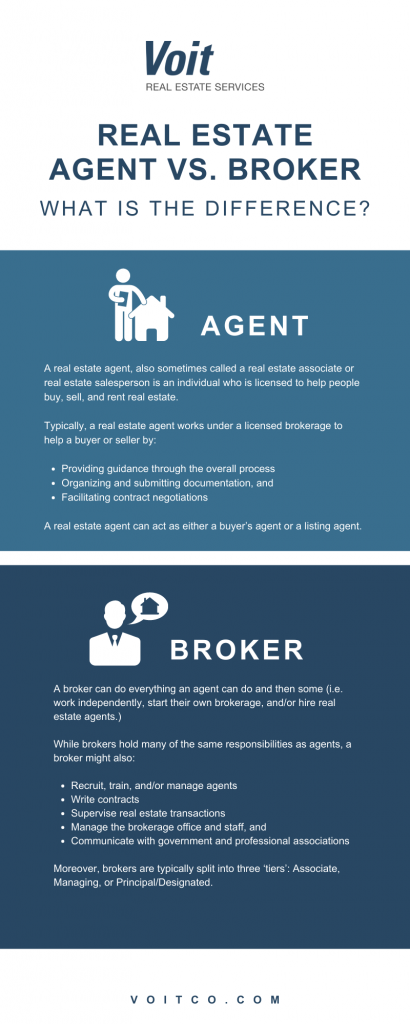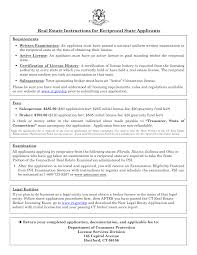
When you think of real estate, you probably hear people using the terms "agent" or "broker." These titles are commonly used in the industry, but they don't mean the same thing and require different skill sets to earn.
There are some big differences between being an agent and a broker, so it's important to know the difference before you start your career. Understanding the difference between these two jobs can help you decide which path is right for you.
Associate broker vs real estate agent
In order to work as a broker, you must first be licensed in your state. This requires education, training and passing multiple exams. But, the benefits are very worthwhile. You have options: you can start your own brokerage, manage agents, or work with property management companies.
A broker can help you maximize your earning potential. A broker can negotiate a higher share of your commission than an agent. This can increase your total income and make the job more rewarding.

On the other hand, a real estate agent is paid on a percentage basis. This means that they get money when a deal is closed. They usually represent buyers and sellers, or both.
They assist clients with buying or selling a home by helping them price their house, find interested buyers and set up home tours. They also assist with final contract negotiations.
Brokers can also provide real estate services, such as rental assistance. This can help diversify your income. A broker is charged a fee to represent landlords and collect a percentage of rent from each tenant.
The supervisory role of a broker can be to oversee other agents who have their licenses and offices. Many firms find them valuable because they can make sure that their agents follow the law and adhere to local regulations.
The responsibilities of a broker can be vast and they often have to deal with more than agents. They must follow a strict code to protect their clients against unscrupulous business practices or misconduct.

Brokers must also have financial backing from a company in order to be able to operate. This can give them a steady, predictable income that allows them to focus on their work without worrying about losing money.
While obtaining a broker’s license may take time and money, it can lead to many more career opportunities. A broker has more experience than an agents.
Because of higher transaction volumes and commission splits, they might have a higher average annual income. They may also be able to exercise greater control over their personal and business decisions.
Whether you're a real estate agent or a broker, make sure to get the right training and certifications. This will enable you to be the best professional and meet the needs your clients.
FAQ
Should I buy or rent a condo in the city?
Renting is a great option if you are only planning to live in your condo for a short time. Renting will allow you to avoid the monthly maintenance fees and other charges. You can also buy a condo to own the unit. You can use the space as you see fit.
How many times do I have to refinance my loan?
This depends on whether you are refinancing with another lender or using a mortgage broker. Refinances are usually allowed once every five years in both cases.
What is the cost of replacing windows?
Replacing windows costs between $1,500-$3,000 per window. The total cost of replacing all of your windows will depend on the exact size, style, and brand of windows you choose.
Is it possible for a house to be sold quickly?
If you have plans to move quickly, it might be possible for your house to be sold quickly. Before you sell your house, however, there are a few things that you should remember. First, you must find a buyer and make a contract. The second step is to prepare your house for selling. Third, you must advertise your property. You must also accept any offers that are made to you.
Statistics
- Over the past year, mortgage rates have hovered between 3.9 and 4.5 percent—a less significant increase. (fortunebuilders.com)
- The FHA sets its desirable debt-to-income ratio at 43%. (fortunebuilders.com)
- Based on your credit scores and other financial details, your lender offers you a 3.5% interest rate on loan. (investopedia.com)
- This seems to be a more popular trend as the U.S. Census Bureau reports the homeownership rate was around 65% last year. (fortunebuilders.com)
- Private mortgage insurance may be required for conventional loans when the borrower puts less than 20% down.4 FHA loans are mortgage loans issued by private lenders and backed by the federal government. (investopedia.com)
External Links
How To
How to Buy a Mobile Home
Mobile homes are homes built on wheels that can be towed behind vehicles. Mobile homes were popularized by soldiers who had lost the home they loved during World War II. People who want to live outside of the city are now using mobile homes. These homes are available in many sizes and styles. Some houses are small while others can hold multiple families. Some are made for pets only!
There are two types of mobile homes. The first is made in factories, where workers build them one by one. This process takes place before delivery to the customer. You can also build your mobile home by yourself. The first thing you need to do is decide on the size of your mobile home and whether or not it should have plumbing, electricity, or a kitchen stove. You'll also need to make sure that you have enough materials to construct your house. To build your new home, you will need permits.
If you plan to purchase a mobile home, there are three things you should keep in mind. Because you won't always be able to access a garage, you might consider choosing a model with more space. A larger living space is a good option if you plan to move in to your home immediately. The trailer's condition is another important consideration. It could lead to problems in the future if any of the frames is damaged.
Before buying a mobile home, you should know how much you can spend. It is important that you compare the prices between different manufacturers and models. Also, consider the condition the trailers. There are many financing options available from dealerships, but interest rates can vary depending on who you ask.
An alternative to buying a mobile residence is renting one. Renting allows the freedom to test drive one model before you commit. Renting is expensive. Renters usually pay about $300 per month.